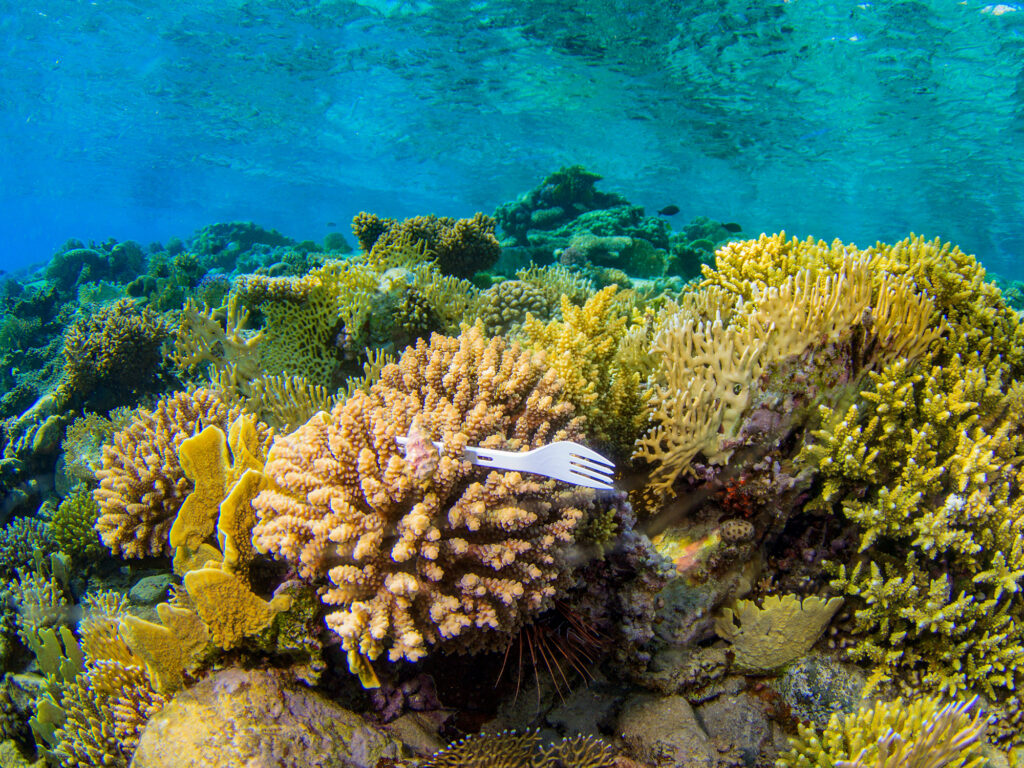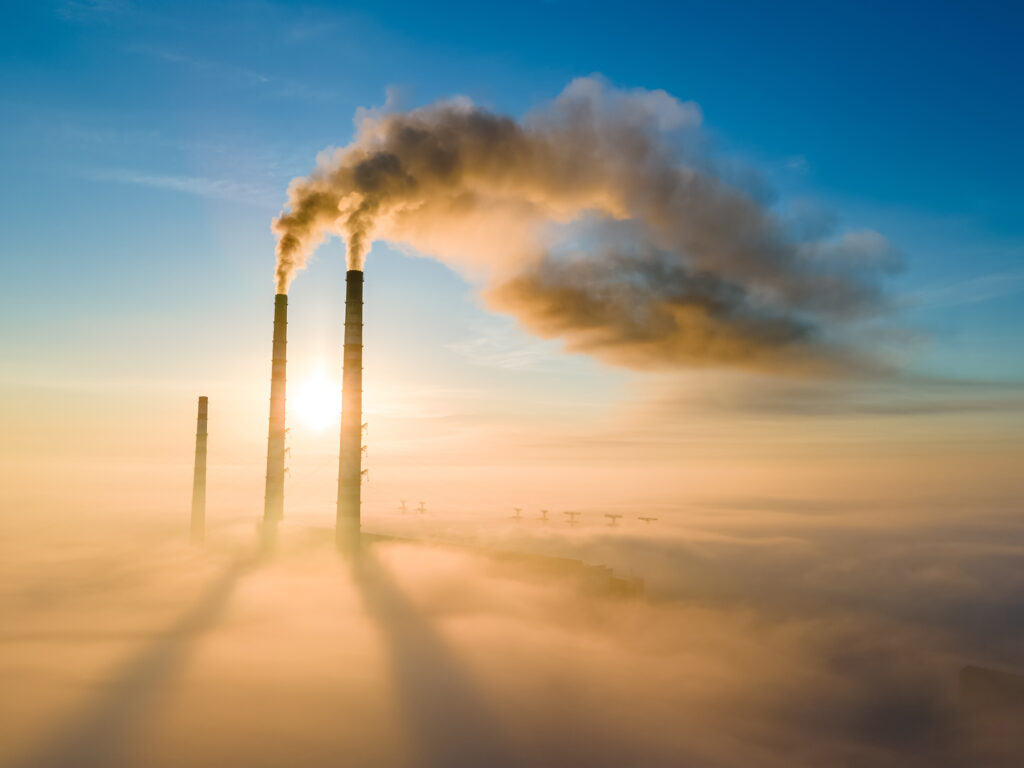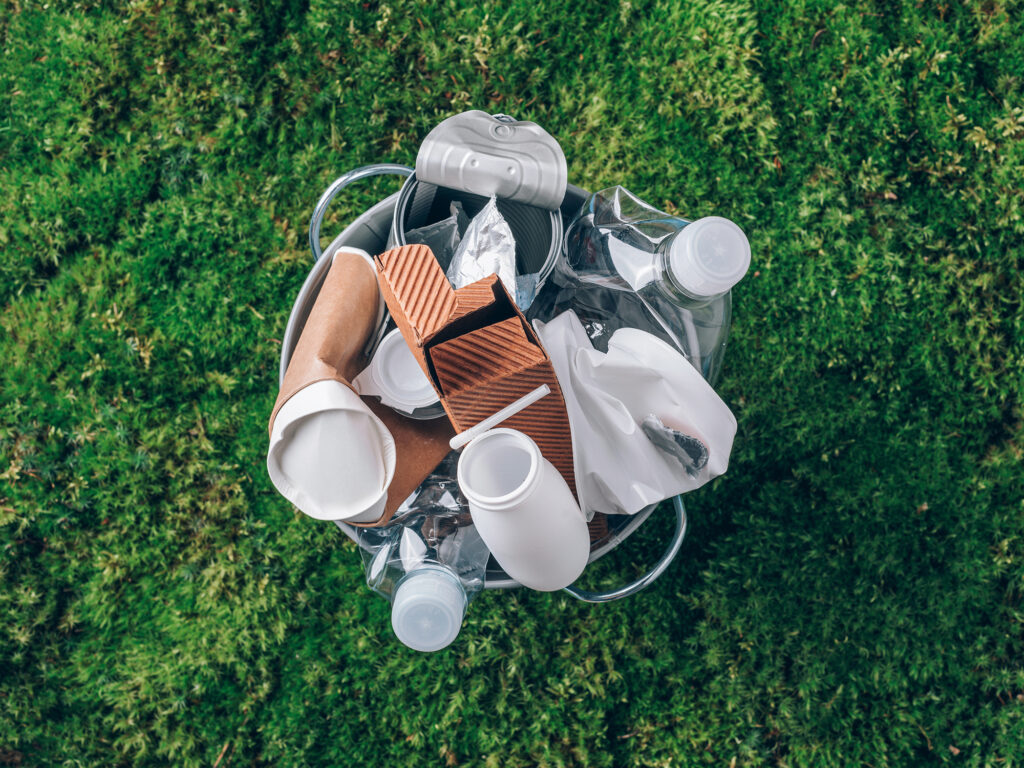7 English Phrases About the Environment

Did you know that today is Earth Day? To celebrate, learn these seven English phrases you can use to protect our planet!
1. The Environment (n.)

"The environment" refers to all the things that surround us. This includes living things like plants and animals as well the air we breathe, the ground we step on, and nearby bodies of water. It's like the word "nature," but we usually use it to talk about the effect that us humans have on it. Check out these news articles to see for yourself!
The best way to reduce the damage humans are causing to the environment is to stop eating meat and dairy.
"Want to Protect the Environment? Stop Eating Meat and Dairy"
Swedish student Greta Thunberg stopped flying in 2015 because of its effect on the environment.
"How Air Travel Affects the Environment"
There are a lot of phrases that use different forms of the word "environment." Here are some of the most useful ones.
- "Environmental issues" are problems (such as pollution) that hurt the environment.
- "Environmental impact" is the effect we have on the environment. We should try to reduce our environmental impact when possible.
- "Environmentally friendly" is a phrase we use to describe products and actions that don't hurt the environment. For example, cycling is environmentally friendly while plastic bags are not. People also say "eco-friendly" for short.
- Someone who is "environmentally conscious" tries to respect the environment when they make decisions. They'll buy eco-friendly products, save energy and water, and take public transport instead of driving to work.
2. Climate Change (n.)
"Climate" refers to the weather patterns of a place. For example, Canada has a "cold climate": it is usually cold and has longer winters than summers.
"Climate change" refers to changes in weather patterns all around the world. When people use this phrase, they are usually talking about global warming. Here are some examples from the news.
Planting trees is the cheapest way to fight climate change.
"Best Way to Fight Climate Change? Plant a Trillion Trees"
Over the last 25 years, sea levels have been rising quickly because of climate change.
"Half of World's Beaches in Danger from Climate Change"
3. Green (adj.)

Because a lot of nature is green, the word "green" has become another way to call something "environmentally friendly."
- "Green energy" includes wind and solar energy – natural sources of energy that don't hurt the environment.
- A building that's "green" is designed to be as eco-friendly as possible.
- "Green parties" are political parties that want to protect the environment.
There's also the phrase "go green," which means to become environmentally conscious. For example, after watching a documentary on the dangers of plastic, you might "go green" and decide to stop using anything made of plastic.
Check out these news articles for more ways to use "green."
A number of green initiatives have already been undertaken in Milan in recent years.
"Milan's Ambitious Plan to Be Cleaner, Greener"
Google has added other ways to help people make greener travel choices.
"Google Says New Search Tool Helps You Fly 'Greener'"
4. Greenhouse Gas (n.)

A "greenhouse" is a glass building used to grow plants. The glass lets sunlight into the greenhouse but keeps heat in so the plants can grow in a warm environment.
Greenhouse gases are gases that work like a greenhouse, but they aren't a good thing! They trap heat in the atmosphere and are a major cause of global warming.
When food breaks down, it emits methane, a greenhouse gas that is one of the major causes of global warming.
"California to Ban Food Waste in Landfills"
A 2021 study found that non-vegetarian diets produce 59% more greenhouse gases than vegetarian diets in the UK.
"Burger King Starts Selling Vegan Nuggets in the UK"
"Greenhouse gas" is often used in the phrase "greenhouse gas emissions." This refers to the production and release of greenhouse gases into the atmosphere.
Transportation is the leading cause of greenhouse gas emissions in the United States.
"Fuel Companies to Pay for Emissions in Some US States"
Africa's 54 countries are responsible for less than 4% of global greenhouse gas emissions.
"Africa's Rare Glaciers May Soon Disappear"
5. Carbon (n.)
"Carbon" is short for "carbon dioxide," which is one of the most common greenhouse gases. You'll usually see "carbon" used in the context of carbon emissions.
The band plans to reduce the tour's carbon emissions by 50% compared to its 2016-17 world tour.
"Coldplay Announces Environmentally Friendly World Tour"
Another way to talk about carbon emissions is by using the phrase "carbon footprint." Our carbon footprint is the amount of carbon that's emitted as a result of our actions. Like a footprint we leave on the ground, our carbon footprint is a measure of the effect that our actions have on the environment.
Meat has a much larger carbon footprint than vegetables, partly because it also includes the carbon footprint of the food used to feed the animals.
"The App that Helps you Reduce Your Carbon Footprint"
A country, city, company, or lifestyle that is "carbon neutral" has a carbon footprint of zero. Either it does not produce carbon dioxide or balances out carbon emissions by doing things like planting trees.
Microsoft plans to make 825,000 carbon-neutral Xbox consoles, meaning that the way they are made will not increase how much carbon dioxide is in the air.
"Video Game Companies Promise to Fight Climate Change"
6. Sustainable (adj.)
Sustainability is about using natural resources in a way that doesn't disturb the environment. For example, if we catch too much fish, there won't be enough left to reproduce, and soon there won't be any fish left at all! To prevent this, we need to fish "sustainably": leave enough fish in our oceans and rivers so their populations remain stable.
More generally, we use "sustainable" to describe environmentally friendly ways of living and doing things.
- Sustainable farming involves growing things organically instead of using harmful chemicals.
- Sustainable clothing is made of materials that don't pollute the environment.
- A sustainable lifestyle involves not wasting resources like food, water, and energy in your everyday life.
Air travel can also be sustainable if we make airplanes more eco-friendly.
Boom ... says it's the first company to design its planes to be sustainable from the start. It says that the XB-1 is 100% carbon neutral, and that the Overture will be able to use sustainable ... fuel, which is made from waste products and creates less pollution.
"New Commercial Supersonic Jet to Get Test Flight in 2021"
7. Single-Use (adj.)

"Single-use" items are things that can only be used once before being thrown out. They can be made out of a lot of materials, such as paper, cloth, and even eco-friendly materials like bamboo.
However, most single-use items are made of plastic: e.g. plastic water bottles, plastic cutlery, plastic bags, plastic straws, etc. A lot of countries are now banning single-use plastics, so you'll see this term a lot in the news.
New Zealand has announced that it will ban many single-use plastics by 2025. The ban includes items such as plastic plates, straws, stirrers and even fruit labels.
"New Zealand to Ban Many Single-Use Plastics by 2025"
New York has passed a law making it illegal for hotels to give their guests single-use plastic toiletry bottles.
"New York to Ban Single-Use Toiletry Bottles from 2024"
Want to Improve Your English While Helping the Environment?
If you want to improve your English while helping the environment, take English lessons on Engoo!
- We're an online tutoring platform, so all our students and tutors learn and teach from home, which means we have a very low carbon footprint.
- We have plenty of lessons about the environment. Plus, all our lesson materials are online, so you don't need to waste paper printing anything out.
Sign up for Engoo here!



